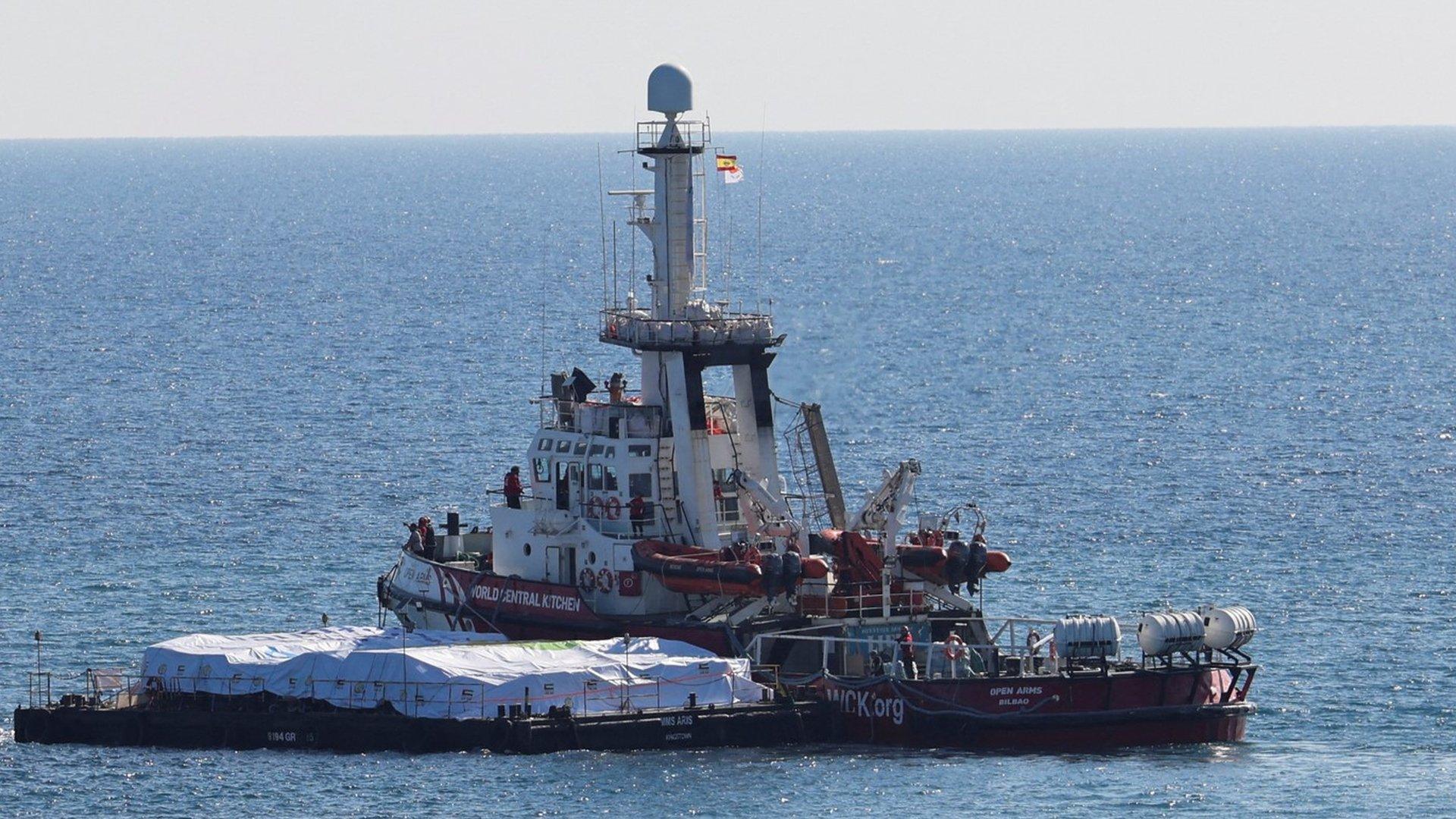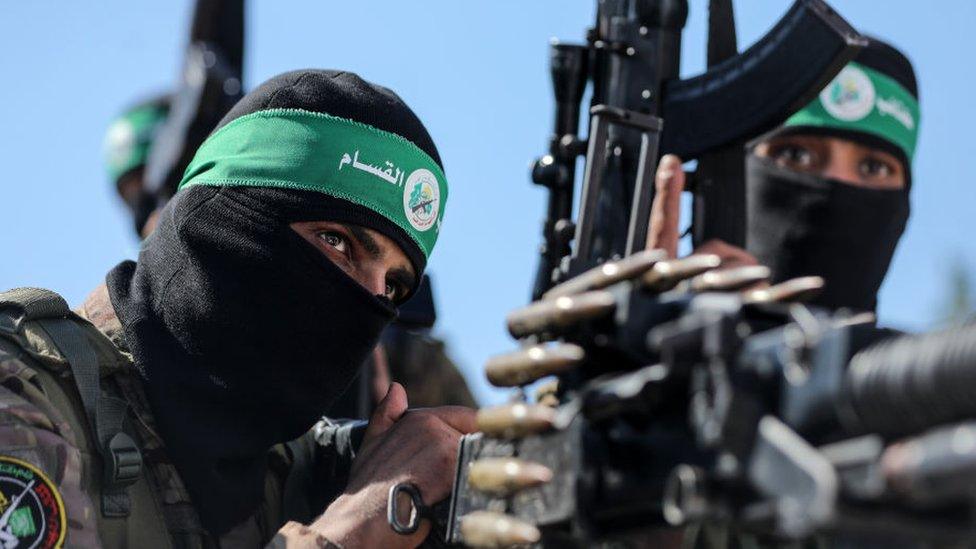Biden and Netanyahu's deepening rift on public display
- Published
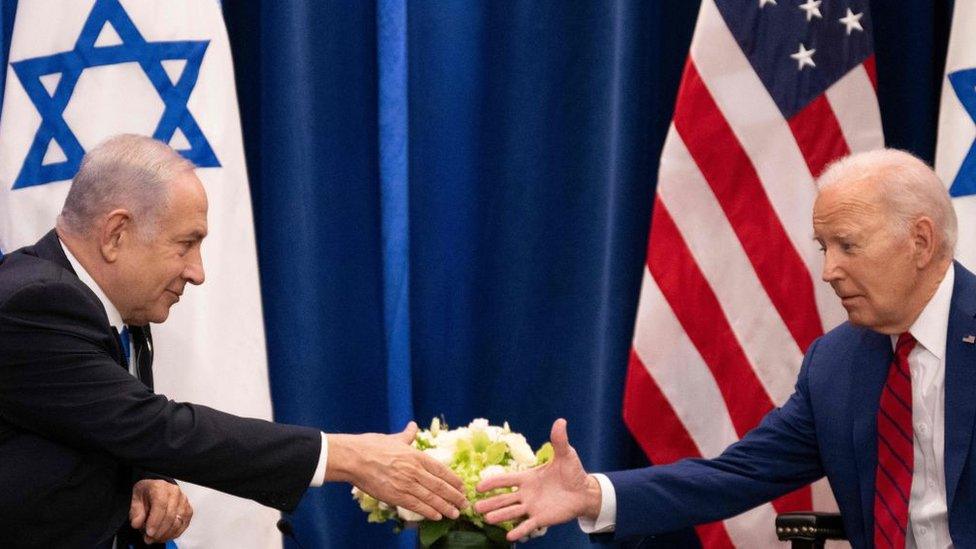
In the days after the 7 October attack, two US aircraft carrier strike groups set sail for the Middle East - a war-ready fleet signalling President Biden's determination to deter Israel's foes.
On Tuesday, a different projection of American power departs from the east coast.
More than 1,000 US troops will set sail to build a vast, floating harbour to supply Gaza with food and stem the growing risk of Palestinians dying of starvation.
The contrasting missions, within five months of war waged between Israel and Hamas, have revealed the strain contained in Washington's policies.
One current and two former administration officials told the BBC they believe the US approach amounts to an outright contradiction: Arming Israel while at the same time unsuccessfully urging it to allow far more aid through its military lines to reach the war's civilian victims.
The United States remains Israel's closest ally and biggest provider of military aid, yet an already troubled relationship between Mr Biden and Israeli prime minister Benjamin Netanyahu has atrophied into a clash increasingly on public display. At its core is the spiralling number of civilians killed and a humanitarian crisis in Gaza, where the UN warns that more than half a million people - a quarter of the population - is on the brink of famine.
Mr Biden has become more and more vocal in calling for Israel to let much more humanitarian aid into the territory, with "no excuses". He used his State of the Union speech to argue for Israel's fundamental right to defend itself since the Hamas attacks but also to tell its leadership that life-saving supplies to Palestinians could not be a "bargaining chip". He has called Israel's response in Gaza "over the top".
The Israeli prime minister insists aid is being allowed in, laying blame instead with Hamas for "stealing" it and the UN for failures in its distribution. The UN in turn blames Israel for attacking police who secured the convoys.
‘We don’t feel the joy’: Ramadan marred by Israel-Gaza war
Mr Netanyahu hit back at the US president over his criticisms and over a warning he was "hurting" more than "helping" Israel, telling Mr Biden he was wrong on both counts.
"The attempt to say that my policies are my private policies that are not supported by most Israelis, is false. The vast majority are united as never before and they understand what's good for Israel," Mr Netanyahu told the Politico website on Sunday., external
Different red lines
Israel is the world's biggest cumulative recipient of US military aid, supplied by Washington with around $3.8bn worth of weapons and defence systems each year.
Mr Biden, caught on a "hot-mic" after his speech to Congress, said he had told Mr Netanyahu he would have a "come-to-Jesus meeting" with him, sparking speculation he could make a threat to cancel some weapons supply as leverage. Mr Biden later suggested an Israeli assault on the city of Rafah, where some 1.5 million mostly displaced Palestinians have sought refuge, was a "red line".
But he also appeared to back-track, saying: "The defence of Israel is critical… There's no red line [in which] I'm going to cut off all weapons so they don't have the Iron Dome [missile defence system]."
Mr Netanyahu responded during his interview on Sunday, vowing to press ahead into Rafah: "We'll go there. We're not going to leave [Hamas]. You know, I have a red line. You know what the red line is? That October 7 doesn't happen again. Never happens again."
Among critics of US policy are some who have spent decades implementing it.
Josh Paul, a former senior official at the State Department who resigned last year in protest over the impact of military assistance to Israel, said the administration should abide by US laws that limit arms supplies if a country is deemed to be restricting access to US humanitarian aid.
"Using the US Air Force, or building this pier [to deliver aid]… both of those are being done because the administration has not leaned on Israel hard enough to open the ground lines of assistance to Gaza."
"I think American military families need to be very aware that the president is making a decision to put their family members into harm's way, rather than leaning on an ally to follow its own obligations under international law," said Mr Paul.
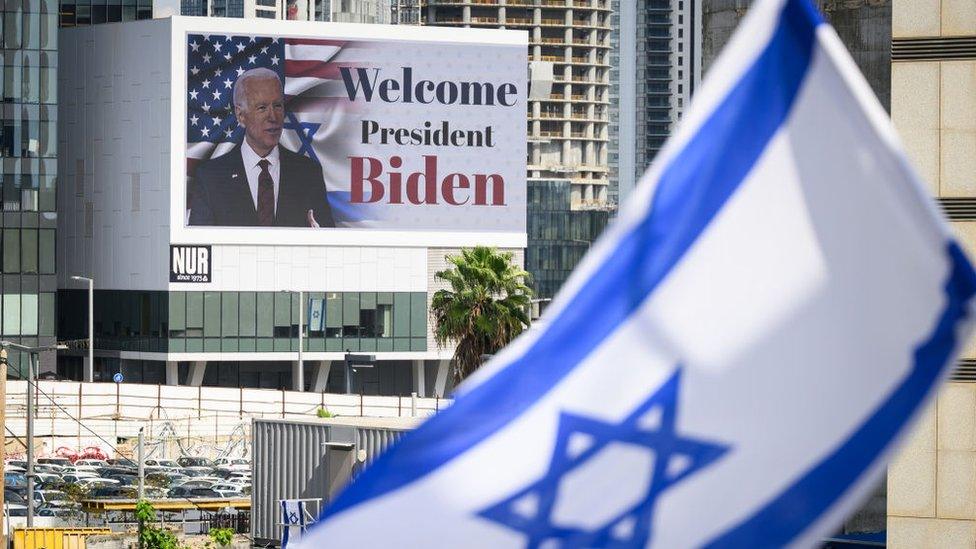
Mr Biden travelled to Israel soon after the 7 October attack in an early sign of US solidarity
Pressed by the BBC on Monday over the extent of its influence, the US State Department said it was the "intervention of the United States that has led humanitarian assistance to go into Gaza in the first place."
"The President of the United States travelled to Israel and cemented a deal that Secretary Blinken initially reached to allow [the] Rafah [crossing with Egypt] to open," said State Department spokesman Matthew Miller.
Israel's government denies blocking access, saying "Israel has placed no restrictions on the amount of food, water, medical or shelter equipment that can enter the Gaza Strip," blaming a "backlog" on UN agencies which the UN categorically rejects.
Dave Harden, a former mission director at the US Agency for International Development (USAID) in the West Bank and Gaza, told the BBC that Mr Netanyahu didn't appear to be listening.
"He almost treats Biden as some kind of inconsequential second secretary of a low-ranked European power… the gap between Israel and the US just deepens," said Mr Harden.
- Published12 March 2024
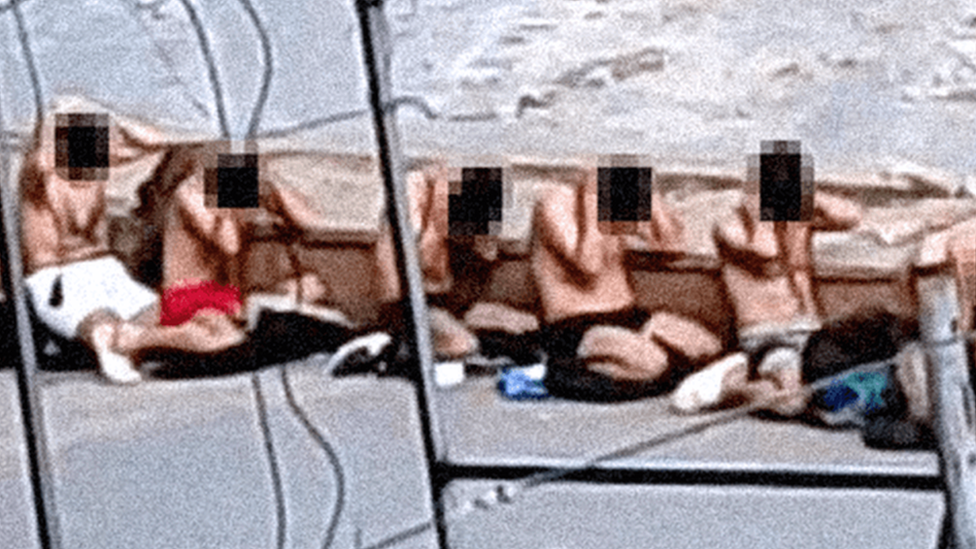
- Published12 March 2024
